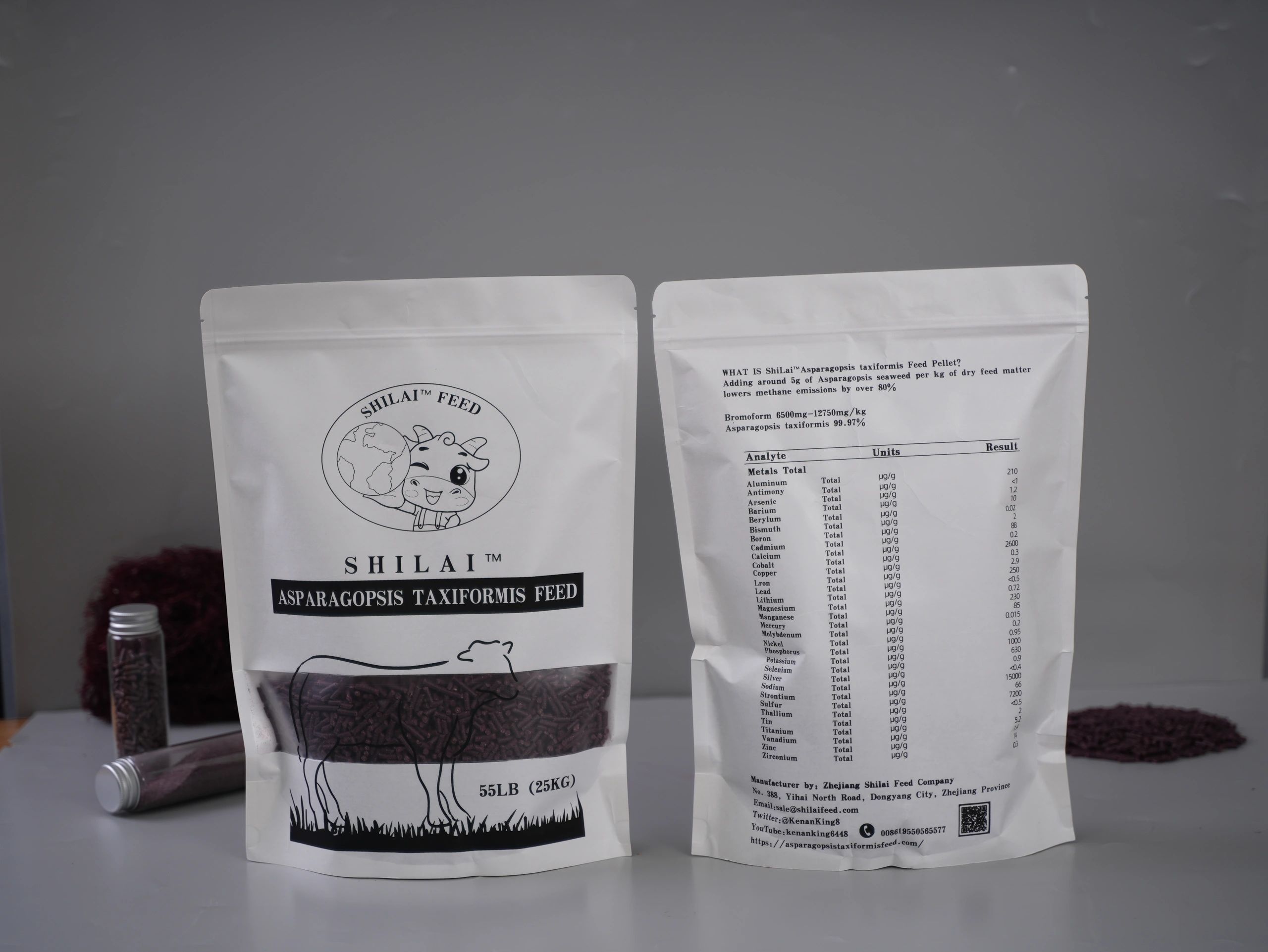Worldwide agriculture accounts for a significant portion of greenhouse gases, with livestock as a chief contributor.
Methane exerts a stronger warming influence than carbon dioxide, making reductions in methane critical for near-term climate action.
A red seaweed called Asparagopsis taxiformis has surfaced as a potential game-changing tool to lower methane produced by grazing animals.
The alga carries a bioactive agent that inhibits the rumen microbes responsible for methane, lowering emissions from animals.
Including Asparagopsis taxiformis in livestock formulations has delivered encouraging trial data that point toward meaningful reductions in livestock methane.
- Additionally, Asparagopsis taxiformis provides further value propositions alongside emissions reductions.
- Stronger digestive performance in animals
- Potential to stimulate rural economies via seaweed value chains
More evidence and development remain essential, but Asparagopsis taxiformis offers considerable potential for sustainable emission reduction.
Tapping the Value of Asparagopsis taxiformis Powder for Livestock Diets
Asparagopsis taxiformis prepared as powder or extract could enable broad deployment as a functional feed additive.
The seaweed offers a combination of nutritive and bioactive properties that benefit animal performance.
Formulating with A. taxiformis powder has lowered methane in studies and can provide additional vitamins and minerals to animals.
Further rigorous research is crucial to optimize dosage, processing, and long-term safety to unlock full commercial potential.
Asparagopsis taxiformis: Driving New Models of Sustainable Livestock Production
Asparagopsis taxiformis is becoming notable as an option to confront the environmental issues driven by common animal agriculture practices.
Adoption of the algae in feed could enable measurable reductions in methane and a smaller ecological footprint for farms.
Beyond emissions, studies indicate Asparagopsis may also improve animal health and productivity metrics in some contexts.
Large-scale implementation and chronic impact assessment remain to be proven, yet preliminary results are highly encouraging.
Mitigating Methane Emissions with Asparagopsis in Animal Diets

The seaweed has surfaced as a practical strategy to reduce enteric methane from cattle, sheep, and goats.
Its methane-cutting impact is linked to compounds that interfere with the microbial pathways responsible for methane formation.
- Research evidence points to pronounced methane reductions in trials where Asparagopsis was used in feeds.
- Using the seaweed in feed formulations is a sustainable pathway to cut enteric methane emissions.
- Industry participants are exploring pathways to implement Asparagopsis into commercial feeding systems.
Asparagopsis: A Transformative Feed Innovation for Livestock Production
Marine research points to Asparagopsis taxiformis as a promising intervention to reduce livestock methane emissions.
- By including Asparagopsis in diets, researchers have reported notable reductions in methane output with clear environmental implications.
- The innovation creates potential to advance food security and environmental stewardship simultaneously.

As climate strategies evolve, Asparagopsis emerges as a distinctive, implementable solution for cutting livestock methane.
Advancing Optimization of Methane-Cut Feeds Based on Asparagopsis taxiformis
Studies concentrate on ideal handling, formulation, and application rates to make A. taxiformis-based feeds most effective.
The Science Behind Asparagopsis taxiformis's Methane-Lowering Effects
The core mechanism involves active molecules in the seaweed that target and diminish methanogen activity, leading to lower methane.
Bromoform-type compounds found in Asparagopsis are central to its methane inhibition effect, while scientists examine effects and safety.
Embedding Asparagopsis in Feed Formulations to Drive Sustainable Farming
A. taxiformis can be formulated into feeds to deliver both nutritional benefits and methane reduction properties.
Using the algae in diets can boost nutrient supply, aid digestive function, and impart beneficial antimicrobial attributes.
Asparagopsis taxiformis: Nature-Driven Gains for Food System Sustainability
Asparagopsis taxiformis offers a natural pathway to mitigate climate impacts associated with livestock and contribute to sustainable food systems.
- Furthermore, the algae’s nutrient density can make feeds more nutritious for livestock.
- Scientists and commercial stakeholders are exploring applications of Asparagopsis in aquaculture and terrestrial agriculture.
Widespread incorporation of Asparagopsis into feeds could materially lower the environmental burden of livestock farming.
Enhancing Animal Health and Productivity with Asparagopsis Feed Additives
The seaweed presents a promising feed additive option with potential co-benefits for emissions and animal performance.
Research indicates potential gains in digestive efficiency and feed conversion ratio from Asparagopsis inclusion, supporting growth outcomes.
The seaweed’s bioactives may provide antioxidant and immune-support effects that support animal robustness and disease resistance.
Growing market and regulatory interest in emissions reduction underscores the potential role for Asparagopsis as development continues.
Methane-Cut Feed with Asparagopsis: Towards a Carbon Neutral Future
With pressure rising to decarbonize food production, Asparagopsis provides a credible option to lower the sector’s greenhouse gases.
- The scientific consensus points to the seaweed’s compounds as inhibitors of rumen methanogenesis, limiting methane output.
- Experimental work has shown promising methane decreases associated with Asparagopsis supplementation in diets.
This innovative approach not only offers a greener feed option but also the potential to transform food production toward climate-resilient outcomes.